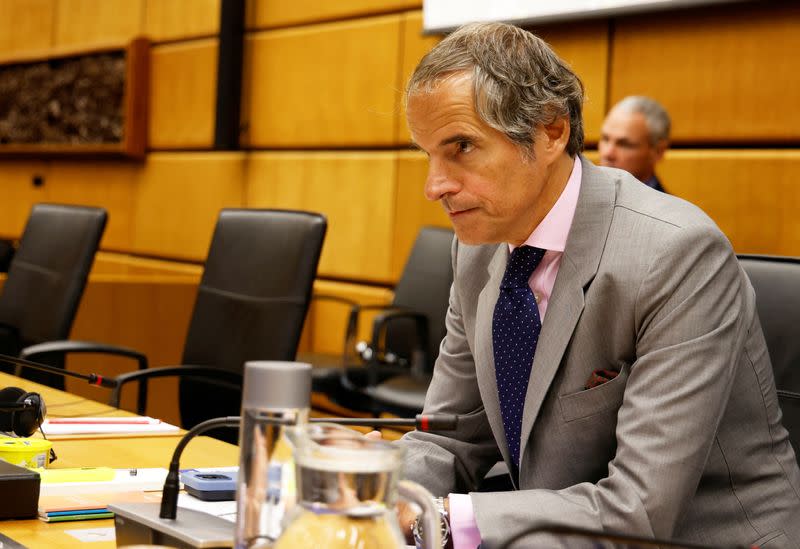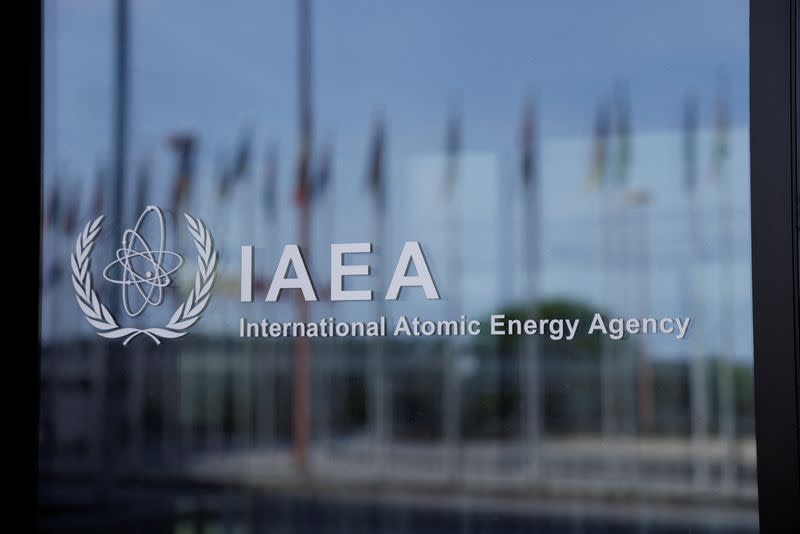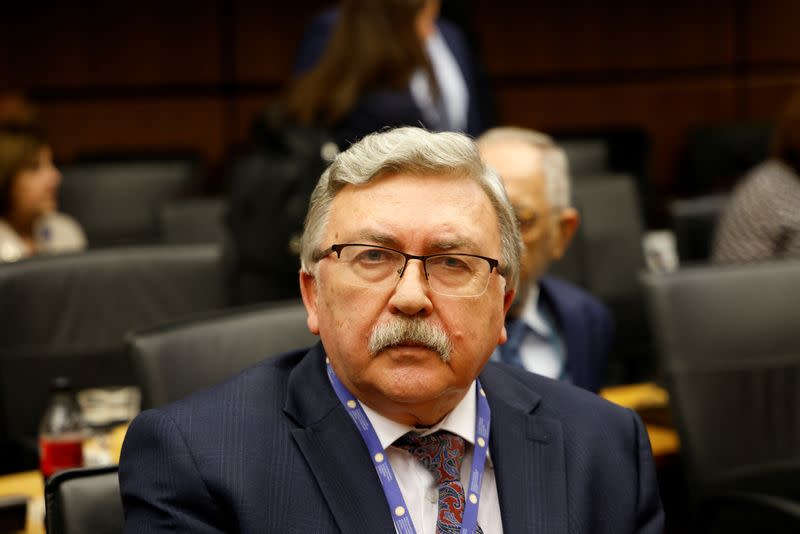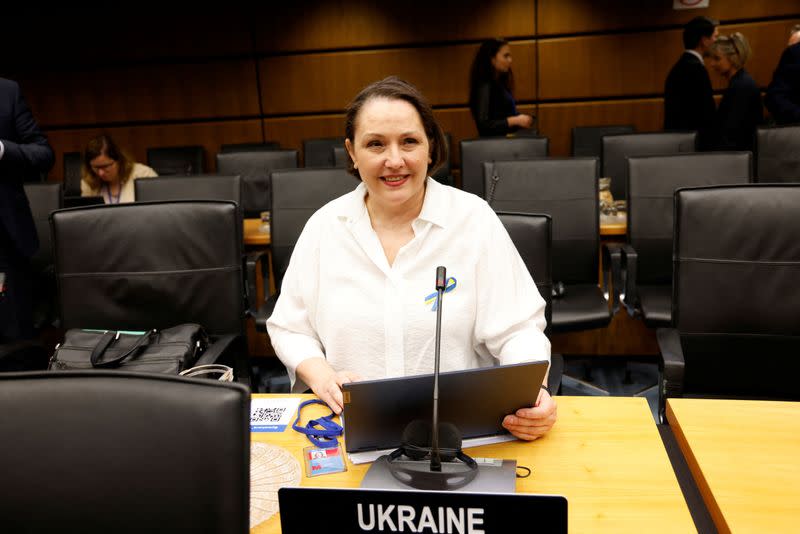IAEA chief says Zaporizhzhia nuclear plant attacks risk dangerous shift in Ukraine war
- Oops!Something went wrong.Please try again later.
VIENNA (Reuters) -Drone attacks on the Russian-held Zaporizhzhia nuclear power plant in Ukraine must stop as they could pose "a new and gravely dangerous" stage in the war, the U.N. nuclear watchdog chief told his agency's 35-nation Board of Governors on Thursday.
Drones attacked Zaporizhzhia, Europe's biggest nuclear power plant, on Sunday, hitting a reactor building in the worst such incident since November 2022, though nuclear safety was not compromised, the International Atomic Energy Agency (IAEA) has said.
Moscow and Kyiv have repeatedly accused one another of targeting the plant since Russia seized it weeks after it invaded Ukraine. Both countries requested an emergency meeting of the IAEA's Board soon after Sunday's attack.
"The most recent attacks ... have shifted us into an acutely consequential juncture in this war," IAEA Director General Rafael Grossi told the Board gathering.
He called on the Board to "unanimously to support the role of the IAEA in monitoring" principles aimed at preventing an accident at the plant, including that it not be attacked.
Since no draft resolutions have been submitted to the Board meeting, it is likely to boil down to an exchange of statements by the countries convening behind closed doors in Vienna.
"We are meeting today, and I will meet with the U.N. Security Council next week, because it is of paramount importance to ensure these reckless attacks do not mark the beginning of a new and gravely dangerous front of the war," Grossi said, adding: "Strikes must cease."
Russia's representative to international organisations in Vienna, Mikhail Ulyanov, described as a "very serious flaw" Grossi's failure to single out Ukraine as the guilty party.
"I get the feeling that they are afraid," Russian news agencies quoted Ulyanov as telling Russian journalists.
"It is simply not done to speak badly of Ukrainians because they are supposed to be the victims. An atmosphere is being created which essentially encourages the Ukrainian side to commit reckless actions, like these attacks," he said.
But he said he believed there would be no more incidents.
The Ukrainian statement to the meeting said the incident was part of a longstanding Russian disinformation campaign.
"But this time it is many times more dangerous, since these are not just words, but a real encroachment on the physical integrity of a nuclear facility," the statement said.
"Russia's attempt to pin the blame on Ukraine is a desperate effort to hide its guilt."
(Reporting by Francois Murphy; editing by Mark Heinrich, Ron Popeski and Bill Berkrot)




